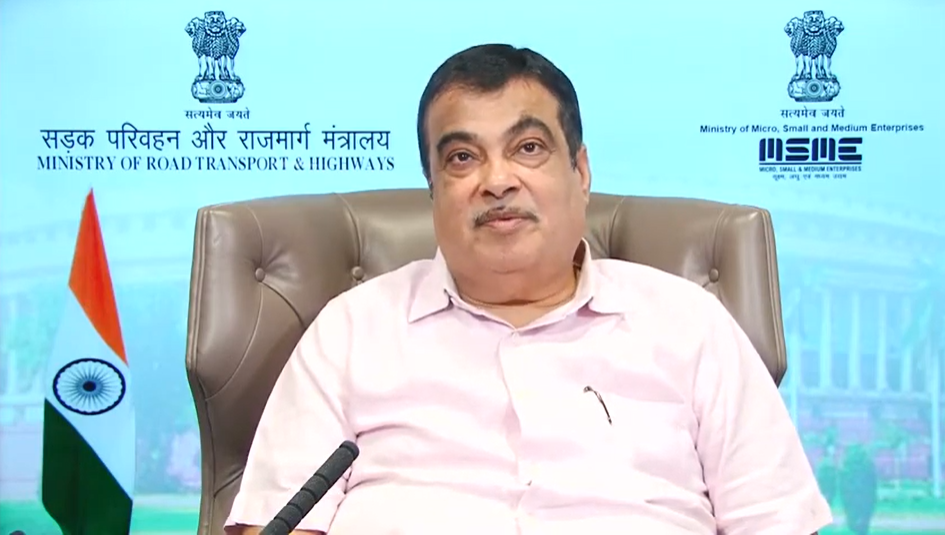“India is power surplus so e-mobility solutions are 100% in the interest of the country,” said Nitin Gadkari, Minister for Road Transport and Highways and the Minister of Micro, Small and Medium Enterprises speaking at the 7th edition of India e-Mobility Conclave 2020 held yesterday.
Organized by India Energy Storage Alliance (IESA) – the IMC conclave 2020 served as a first-of-its-kind day-long conclave, bringing together major stakeholders from the transportation, automotive, and energy storage industry to deliberate on the roadmap for electric mobility in India and charging infrastructure adoption in 2020.
Speaking at the conclave, Gadkari noted that transportation sector reliance on crude oil imports had put a heavy burden on the Indian economy and ‘power’ could serve as an economical and robust alternative vis-à-vis fossil fuel-powered vehicles.
“There is a strong need to develop import-substituting, cost-effective, indigenous and pollution-free sustainable transportation system in the country and one of the most important solutions is public transport on electricity,” Gadkari emphasized.
E-mobility and battery cell manufacturing:
On promoting e-mobility and manufacturing of electric vehicles component in India, Gadkari said: “Our priority is to make Li-ion batteries in India.”
Lithium-ion batteries are the main energy source of electric vehicles and have been one of the biggest pain points for EV component industry in India. Indian battery-pack manufacturers continue to rely heavily on imports (mainly from China) for lithium cells.
The transport minister added that the government is working on prioritizing making EV materials in India aimed at reducing reliance on the import of battery cells.
“We have already given two mines of Li-ion to private people, we will get raw materials as soon as possible. At the same time, we are developing technology,” Gadkari shared.
In May, IESA reported that the Finance Minister Nirmala Sitharaman recognized advanced cell battery storage as a ‘champion sector’ as part of the self-reliant India (Atmanirbhar Bharat) initiative. Further, the government is planning to invest around $4 billion to set up at least four Tesla-style giga factories for battery production with the emphasis of the scheme being on promoting cell manufacturing in India and reducing reliance on the import of battery cells.
The minister remained positive that as the benefits of EVs became apparent to the public and cost lowers, EVs will become the preferred choice of consumers.
Citing an example of the long-term viability of EVs, Gadkari added that “for diesel buses, the cost of fuel is ₹150/km but for e-buses, it comes down to ₹50/km so the capital cost is high but fuel cost is low.”
As for the manufacturing industry, the transport minister urged that ‘Make in India’ and ‘Made in India’ should remain the goal.
“If you are importing materials from China and other countries and assembling that is not of no use,” Gadkari noted. “We need to find a solution and that is very important.”
Biofuels and hydrogen fuel cell:
Gadkari also underscored the need for switching to biofuels and exploring new technology which is indigenous and cleaner which could in turn also support the agriculture sector.
The government is thinking of giving priority to ethanol, methanol, biofuels, electric, hydrogen fuel cells, and other different types of fuel available, Gadkari said.
“Present size of ethanol economy is ₹20,000 crore we can make into ₹1,00,000 crore. Bajaj and TVS have already manufactured bikes and scooters on 100% bioethanol,” Gadkari added.
“We are giving ₹6,000 crore subsidies for export of sugar, if we convert that sugar into ethanol it can be a good possibility for the interest of the country to save the foreign exchange and [cut] pollution, Gadkari noted.
Speaking of new technology, the transport minister emphasized that they are also exploring hydrogen fuel cell technology and looking at ways of making hydrogen fuel cells from biomass.
“We can make methanol from coal, and presently, Assam Petroleum, RCF, and others are making it. Even LNG has great potential, he added.
Speaking of the benefits of alternative fuels in long-distance transportation and public transportation, Gadkari added that for trucks and buses, LNG can be the “future fuel”. He shared that the government is planning to make LNG station on the highways across India.












